Team


Researchers
Audrey Arnal

Institut de Recherche pour le Développement, France IRD | audrey.arnal@ird.fr
I am a researcher at the IRD. My research aims to provide scientific evidence for the development of new public health strategies. I am interested in the study of the ecology and evolution of infectious diseases through different empirical, experimental and conceptual approaches. Currently, I am focusing on the study of flaviviruses through the development of research projects in Mexico, in order to study their evolutionary dynamics in complex multi-reservoir/multi-vector systems, using different approaches (field study, experimental infection and advanced phylogenetic analysis). I have collaborated in the writing of 31 scientific articles (17 first/last author) in journals of various disciplines (e.g. STOTEN, PLoS Neglected Tropical Diseases, Ecology Letters, Evolutionary Applications or Evolution among others).
Carlos Arias Ortiz

Instituto de Biotecnología, Universidad Nacional Autónoma de México, UNAM | arias@ibt.unam.mx
I am a researcher at the UNAM Institute of Biotechnology. My area of research is molecular and cellular biology of viruses associated with childhood gastroenteritis, particularly rotavirus and astrovirus, as well as viral epidemiology, diagnosis and metagenomics of respiratory and gastrointestinal viruses. Among my distinctions are the prize of the Mexican Academy of Sciences, the Carlos J. Finlay prize awarded by UNESCO, the appointment of International Investigator of the Howard Hughes Medical Institute (1991-2006), the prize of the World Academy of Sciences in 2008, the 2013 National University Award from UNAM and the 2014 National Science and Arts Award. I was Director of the Institute of Biotechnology from 2005 to 2013 and is Emeritus Researcher of the National System of Researchers.
Carlos Machain Williams

Universidad Autónoma de Yucatán. | carmachain@gmail.com
I am an arbovirologist currently attached to the University of Yucatan, Mexico. I am interested in studying host-pathogen interactions of arboviruses and the ecology of emerging zoonoses. My work in the Yucatan Peninsula has given me extensive experience in tropical diseases. I have recently been involved in identifying emerging arboviruses circulating at the animal-human interface in Mayan communities of Yucatan.
David Roiz

Institut de Recherche pour le Développement, France IRD | david.roiz@ird.fr
I am a researcher specialized in the ecology of emerging diseases transmitted by mosquitoes at IRD and a visiting professor at UNAM. In my research areas, I try to conduct integrated and interdisciplinary approaches to understand emerging diseases, specifically studying the ecology of their transmission, the relationship with biodiversity patterns, and the implications for public health. Throughout my career, I worked in different research institutes, participating in various scientific projects, and numerous conferences. I have supervised PhD and master’s students, published over 70 scientific articles on the ecology and control of mosquito-borne diseases. Currently, I belong to the LMI-ELDORADO, stationed in Mérida (Yucatán Peninsula) at ENES, UNAM, where I coordinate the DiMoC project funded by the European Union. I also participate in various projects on One Health approaches (PRONAII), and on the control and economic costs associated with mosquito-borne diseases (VECTRAP, INVACOST, LAV RUN).
Evens Emmanuel

Université de Quisqueya, Haití. | evens.emmanuel@uniq.edu.ht
I am Vice Chancellor for Research and Innovation, Dean of the Graduate School “Society and Environment” and of the Climate Change Research Team (ERC2) of Quisqueya University, a private non-profit institution of 3,000 students in Port-au-Prince, Haiti. I am also Professor of Water and Wastewater Treatment. My research fields are the methodological approach to human health risk assessment and ecological risk assessment of water and wastewater, and the impact of climate change on groundwater quality. I am the Director of the Doctoral College of Haiti and I was (from May 2012 to December 2018) a member of the Scientific Council of the Agence universitaire de la Francophonie (AUF). Currently, I am a member of the Scientific Council of the French Institute for Research for Development (IRD) for the period between February 2021 and February 2025.
Fernando I. Puerto

Universidad Autónoma de Yucatán, UADY. | pmanzano@correo.uady.mx
Profesor-Investigador titular. Responsable del laboratorio de enfermedades emergentes y reemergentes. Trabajo con virus desde 1981, enfoque mi trabajo inicial con rotavirus, posteriormente, fui Director del Centro de Investigaciones Regionales de la Universidad Autónoma de Yucatán. He publicado cerca 100 artículos científicos, dirigido tesis desde licenciatura hasta posgrado, catedrático de la Facultad de Medicina y Facultad de Odontología. También, del posgrado institucional en ciencias de la salud.
Francisco Galindo Maldonado

Facultad de Medicina Veterinaria y Zootecnia. Universidad Nacional Autónoma de México, UNAM. | fgalindomaldonado@gmail.com
I obtained a degree in Veterinary Zootechnics from UNAM (1990) and a PhD from the University of Cambridge, UK (1994). From 1995 to 2007, I was the founding head of the Department of Ethology and Wildlife at the FMVZ-UNAM. Since then, I have supervised several graduate theses on topics related to applied ethology and sustainable animal production. From 2016 to 2021, I was the secretary of special projects at the FMVZ-UNAM. Since 2013, I have been the coordinator in Mexico of the Collaborating Centre on Sustainable Livestock Systems for the World Organisation for Animal Health (OIE). My main area of interest is the integration of sustainability criteria in animal production, a topic on which I have several publications in international journals. I am the co-editor of Applied Ethology (UNAM, 2004) and Animal Welfare 3rd ed. (CABI, 2018).
.
Karla Dzul Rosado

Universidad Autónoma de Yucatán, UADY. | karladzul@correo.uady.mx
Mi área de investigación abarca aspectos biológicos, ecológicos, epidemiológicos y antropológicos de las enfermedades transmitidas por vectores en la península de Yucatán, con un enfoque particular en la enfermedad de Chagas, el dengue y las enfermedades transmitidas
por garrapatas. Mi trabajo actual se centra en la identificación de factores de riesgo para la enfermedad rickettsial y otras enfermedades transmitidas por vectores (dengue y enfermedad de Chagas) en comunidades mayas, así como en comprender las actitudes y percepciones de la comunidad sobre estas enfermedades. Además, me he centrado en el conocimiento de los médicos sobre estos mismos sistemas de enfermedades, y más recientemente, he dirigido la atención en las comunidades mayas hacia enfermedades emergentes como la COVID-19. En el marco de estas actividades, suelo organizar talleres de Educación para la Salud y encuestas comunitarias.
Luis Fernando Guerra Corado

Wildlife Conservation Society, Guatemala. | lguerrra@wcs.org
I am a veterinary doctor, with a master’s degree in wildlife conservation and management of the National University of Costa Rica (UNA). He currently works at WCS Guatemala, as coordinator of the WCS Guatemala Field Veterinary Program. My interest is to develop research on the Ecology of Diseases and their relationship with conservation within protected areas in Petén, Guatemala.
Oscar Rico

Facultad de Medicina Veterinaria y Zootecnia. Universidad Nacional Autónoma de México, UNAM. | orich@unam.mx
My main interest is to study, from a metacommunity approach, the relationship between host diversity patterns and the diversity of their symbionts at different scales (phylogenetic and functional). I am also interested in investigating the effects of anthropogenic activities on the transmission of wildlife-associated pathogens in order to generate scientific knowledge that can be useful for epidemiological surveillance of wildlife and its conservation.
Rosa Elena Sarmiento Silva

Facultad de Medicina Veterinaria y Zootecnia. Universidad Nacional Autónoma de México, UNAM. | rosass@unam.mx
I work as a professor at the Faculty of Veterinary Medicine and Zootechnical, FMVZ-UNAM. My training in Virology is extensive, and I have worked with viruses of importance in terms of human and animal health. The research areas that I am currently working on are: virology, zoonoses, and coronavirus infections in pigs. I am currently on sabbatical in Mérida, Yucatan Peninsula (ENES, UNAM), where I am coordinating the project UC MEXUS-CONACYT, which is developed in collaboration with Dr. Charles Chiu (UCSF). Additionally, I am participating in the project PRONAII.
Susana López Charretón

Instituto de Biotecnología, Universidad Nacional Autónoma de México, UNAM. | susana@ibt.unam.mx
I am a Researcher at the UNAM Institute of Biotechnology. My work focuses on characterizing the virus-host cell interaction of viruses that cause gastrointestinal diseases in children, mainly rotaviruses and astroviruses. In this field I have published more than 140 research articles. Participate in the establishment of the Red Mexicana de Virología (today the Mexican Society of Virology), which aims to foster the training of students in this field, promote academic interactions among virologists in Mexico, and actively participate in outreach activities to maintain well informed the general public about health emergencies caused by viruses in recent years. This past year I have redirected my group’s work to deal with various aspects of the SARS-CoV-2 pandemic. Since March 2021 I am a member of The National College.
Postdoctoral position
Alhelí Flores-Ferrer

Facultad de Medicina Veterinaria y Zootecnia. Universidad Nacional Autónoma de México, UNAM. | alhelik@hotmail.com
I am interested in host-pathogen interactions and the relationship between loss of biodiversity and increased transmission of pathogens of zoonotic origin. I use dynamic mathematical models to model the mechanisms involved in the transmission of pathogens, to understand their evolution and the co-evolution of the different modeled variables. I seek that the models developed allow a better understanding of complex biological systems and that they participate in the development of strategies for the prevention and control of pathogens, in order to improve human, animal and ecosystem health. I am currently working on the West Nile virus in Yucatan (Mexico) through the project PRONAII.
Ana Laura Vigueras Galván

Facultad de Medicina Veterinaria y Zootecnia. Universidad Nacional Autónoma de México, UNAM. | ana.vigueras09gmail.com
I did my graduate studies at the Faculty of Veterinary Medicine and Zootechnics of UNAM. I am currently doing a postdoc at UNAM. My scientific interest is in the impacts of host biodiversity on the dynamics of the pathogens they carry in various habitats. I am currently a postdoc associated with the PRONAII project developed in the LMI-ELDORADO. I also participate in a monitoring and integral diagnostic project that focuses on the diversity of the holobiome (microbiome and virome) in the species present at the interface with humans in the Yucatan Peninsula (Holobioma) as well as the viral metagenomic analysis project in wild reservoirs and vectors in tropical areas with high biological diversity in Mexico (UC MEXUS-CONACYT).
María José Tolsá García

Institut de Recherche pour le Développement, France IRD. | marijotols@hotmail.com
I studied biology at the Autonomous Metropolitan University (UAM) and did my postgraduate studies at the National Autonomous University of Mexico (UNAM). I am currently doing a post-doctorate at the Research Institute for Development (IRD). My scientific work mainly concerns the study of the dynamics of Flavivirus transmission in birds and mosquitoes through macroecological approaches. I am also interested in the impact of the presence of competent reservoir hosts in ecosystems and their consequence on the risk of emergence. I collaborate in the project PRONAII and in the project UC MEXUS-CONACYT.
Montserrat Elemi García Hernández

Institut de Recherche pour le Développement, France IRD. | elemi.gh@gmail.com
I am in charge of molecular detection, sequencing, and phylogenetic analysis of Flaviviruses and Coronaviruses in birds and rodents. I also analyze the metagenome of bats.
Paulina Pontifes

Facultad de Medicina Veterinaria y Zootecnia. Universidad Nacional Autónoma de México, UNAM. | pontifes.pa@gmail.com
My research interests focus on how intra-individual interactions between a host and its parasites translate into population dynamics, as well as the implications of large-scale phenomena (climate change, landscape modification) as factors leading to host shifts and the emergence of new diseases in multi-host parasitic systems. For my doctoral research topic, I am studying Bartonella spp as a biological model in wild rodents to understand transmission dynamics in multi-host systems. I am also interested in data visualization as a tool to facilitate accessibility of scientific work results and its integration in public policy development.
.
Rodrigo Jesús Barrón Rodríguez

Facultad de Medicina Veterinaria y Zootecnia. Universidad Nacional Autónoma de México, UNAM. | rodjes1@hotmail.com
My work focuses on the identification of viral agents and the analysis of viromes from wild and domestic species in interface environments.
PhD position
Erika Hernández Villegas

Facultad de Medicina Veterinaria y Zootecnia. Universidad Nacional Autónoma de México, UNAM. | erihdzvi@hotmail.com
I am currently a PhD student in the Animal Production and Health Sciences program (FMVZ, UNAM) and I am part of the 2020 UC MEXUS CONACYT. My project aims to identify and define the relationships between viral, bird, and mosquito diversity collected in the Yucatan based on land use. My skills include virology, immunology, bioinformatics, and molecular biology.
Fabiola Nieto

Facultad de Medicina Veterinaria y Zootecnia. Universidad Nacional Autónoma de México, UNAM. | fabyz00nr@gmail.com
I am trying to understand, through statistical and mathematical approaches, the interactions that exist between changes in the diversity of vertebrate hosts and the diversity of zoonotic viruses they may carry. Currently, I am interested in studying the impact of vertebrate communities on the ecological dynamics of certain flaviviruses in order to develop prevention strategies.
Omar García Suárez

Facultad de Medicina Veterinaria y Zootecnia. Universidad Nacional Autónoma de México, UNAM. | omar.gasu22@gmail.com
Throughout my professional career, I have collaborated on various scientific projects focused on studying the impact of human activities on ecosystems and the consequences of these changes on human and animal health. The goal of my research ultimately aims to provide conservation strategy proposals to address current environmental issues. As part of my doctoral project, I am studying the impact of climate and environmental changes on the seasonal and spatial dynamics of mosquito communities in the Yucatan Peninsula.
Paola Martínez Duque

Facultad de Medicina Veterinaria y Zootecnia. Universidad Nacional Autónoma de México, UNAM. | paolamartinezduque@gmail.com
As a veterinarian and holder of a master’s degree in Science from the FMVZ, UNAM, I am currently pursuing a PhD in the same institution. I have participated in research projects focused on the study of the ecology of infectious diseases through the One Health approach. My research interests have focused on analyzing the impact of environmental changes and landscapes on the ecological dynamics of viral diseases with zoonotic potential in wild species. My professional goal is to generate scientific data that contributes to a better understanding of the ecology of infectious diseases and can aid in the development of programs for conservation, animal health, and human health.
Paulina Pontifes

Facultad de Medicina Veterinaria y Zootecnia. Universidad Nacional Autónoma de México, UNAM. | pontifes.pa@gmail.com
Mis intereses de investigación se centran en cómo las interacciones intra-individuo entre un hospedero y sus parásitos se traducen en dinámicas poblacionales, así como en las implicaciones de fenómenos a gran escala (cambio climático, modificación del paisaje) como factores que conllevan a cambios de hospedero y la emergencia de nuevas enfermedades en sistemas de parásitos multi-hospedero. Para mi tema de investigación doctoral, uso a Bartonella spp en roedores silvestres como modelo de estudio para entender la dinámica de transmisión en sistemas multi-hospedero. También me interesa la visualización de datos como herramienta para construir narrativas que mejoren la accesibilidad de los resultados de trabajos científicos y su integración en el desarrollo de políticas públicas desde la perspectiva de Una Salud.
Paulina Walbey

Facultad de Medicina Veterinaria y Zootecnia. Universidad Nacional Autónoma de México, UNAM. | walbey1921@gmail.com
Soy estudiante de doctorado en Ciencias de la producción y de la salud animal, FMVZ-UNAM. Después de realizar mis estudios de maestría sobre las preferencias hematófagas de los mosquitos en diferentes tipos de uso de suelo, y encontrar que se alimentaron en todos los sitios incluyendo los conservados de animales domésticos, principalmente de bovinos, me surgió un gran interés por estudiar el papel que desempeñan los animales domésticos en los ciclos de transmisión de enfermedades arbovirales. Durante mis estudios de doctorado he ahondado en la gran relevancia que tiene el estudio de las interacciones que la domesticación ha provocado entre humanos, animales domésticos y silvestres en la salud pública y animal.
Victor Rodríguez

Institut de Recherche pour le Développement, France IRD. | vm.rodriguezvalencia@gmail.com
As a veterinarian with a master’s degree in infectious diseases and health, I am particularly interested in the ecology of vector-borne diseases. I have had the opportunity to work on different invertebrate biological models (Argasidae, Ixodidae, Streblidae, Culicidae), as well as their vertebrate hosts in different types of habitats. During my PhD, I am studying the feeding preferences of different species of mosquito vectors in order to determine the intrinsic mechanisms that shape the circulation of certain viruses in different types of habitats.
Graduated Master’s students
Laura Alvarez Borla

Instituto de Ecología, INECOL. | laura.aborla@gmail.com
My scientific work focuses on analyzing the effect of landscape structure and composition with different land uses on bat and ectoparasite communities and their biological interactions in the Yucatan Peninsula, Mexico. I am involved in the project PRONAII.
Research assistants
Fernanda Pérez Lombardini
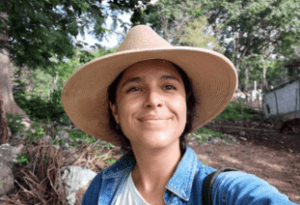
Facultad de Medicina Veterinaria y Zootecnia. Universidad Nacional Autónoma de México, UNAM. | ferperlom@gmail.com
Associate researcher in the project PRONAII. I received my training at the FMVZ, UNAM and I am a graduate student in sustainability sciences at UNAM. I am interested in transdisciplinary and participatory research applied to building adaptation scenarios in the current context of climate change. I am currently involved in a project studying the relationship between social dynamics, cultural aspects, and diseases caused by vector-borne pathogens.
Julia Leleu

Institut de Recherche pour le Développement, France IRD. | julia.leleu@ird.fr
I am an international volunteer from France invited by UNAM and I am studying, within the International Laboratory ELDORADO, the ecology of emerging viral diseases transmitted by mosquitoes. In my professional career, I have participated in various research projects investigating the repercussions of anthropization on human, animal, and environmental health. Currently, I am involved in the diagnosis of arboviruses of importance to public health and in the study of mosquito diversity in the Yucatan Peninsula.
Julio José Barrón Rodríguez

Institut de Recherche pour le Développement, France IRD. | jj.barronr@gmail.com
I studied at the FMVZ, UNAM. I am interested in the relationship between biological and cultural diversity and the risk of diseases, especially those that pose a threat to vertebrate species, including humans. My professional interests include the influence of human activities on socio-ecosystems, disease ecology, and sustainability, with applications to the conservation of the environment and the species we share the planet with, through One Health, transdisciplinarity, sustainability education, and scientific outreach. I have had the opportunity to collaborate on various research projects on endangered species, environmental monitoring, and disease studies at UNAM, UC Davis, and currently at LMI-ELDORADO, where I coordinate vertebrate sampling in the Yucatán Peninsula.
Laura I. López Apodaca
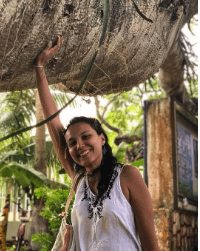
Facultad de Medicina Veterinaria y Zootecnia. Universidad Nacional Autónoma de México, UNAM. |
I am a veterinarian by training, graduated from the Faculty of Veterinary Medicine and Zootechnics at the Autonomous University of Yucatan. During my postgraduate studies, I focused on the molecular detection of arboviruses (Alphavirus, Flavivirus, and Orthobunyavirus) in bats, farm animals, and mosquitoes. Animal production units or farms have generally been my study sites, as I consider them appropriate places for the study of arboviruses and other zoonotic pathogens due to the interactions between vectors, domestic animals, wildlife, and humans. Additionally, I have had the opportunity to participate in various projects in the Arbovirology Laboratory at the CIR – Dr. Hideyo Noguchi, aimed at studying arboviruses in vulnerable communities in the state of Yucatan.
Marco Antonio Jiménez Rico

Facultad de Medicina Veterinaria y Zootecnia. Universidad Nacional Autónoma de México, UNAM. | mjimnzr92@gmail.com
I am an associate researcher in the project PRONAII. I am a biologist and pharmaceutical chemist trained at the Autonomous University of Yucatan (UADY) and obtained my graduate degree in Biochemical Sciences at the Institute of Biotechnology at UNAM. With my laboratory experience, I participate in the diagnosis of different zoonotic viral families of interest, such as Coronavirus and Flavivirus, in animal and human hosts, using molecular biology and serology methods. In the project, I am also interested in studying the prevalence of Flavivirus in the human population, particularly in urban areas.
Mitsuri Guadalupe Pacheco Zapata

Facultad de Medicina Veterinaria y Zootecnia. Universidad Nacional Autónoma de México, UNAM | mitsupacheco@gmail.com
I am a social anthropologist from the Autonomous University of Yucatan. My main interest lies in the anthropological study of mobility, migration, territories, and the transformation of coastal landscapes. However, in recent years I have also worked on the design and dissemination of interdisciplinary and intergenerational cultural projects in the villages of the Yucatan Peninsula. Focused on the relationships between society, ecosystems, and health, I am currently collaborating as an associate researcher in the socio-ecological study of diseases caused by vector-borne pathogens in the Yucatan Peninsula as part of the project PRONAII.
Roger Arana Guardia

Facultad de Medicina Veterinaria y Zootecnia. Universidad Nacional Autónoma de México, UNAM. | roger.arana.guardia@gmail.com
I am a biologist by profession and since 2008, I have been working on studies addressing the ecology of mosquitoes, mainly Aedes aegypti, which are vectors for dengue, chikungunya, and Zika in the Yucatan Peninsula. I have also participated in mosquito control and surveillance programs implemented by the government of the state of Yucatan, as well as at the research center CIR-Dr Hideyo Noguchi. My goal at the ELDORADO Laboratory is to describe the taxonomy of mosquito species present in the Yucatan Peninsula.
Administrator
Sofía Alejandra Espinoza Delgadillo

Facultad de Medicina Veterinaria y Zootecnia. Universidad Nacional Autónoma de México, UNAM y Institut de Recherche pour le Développement, France IRD. | sofiaalejandraespinoza340@gmail.com
I collaborate as administrative support for the Faculty of Veterinary Medicine and Zootechnics of UNAM Campus Merida and the Institute for Development Research (IRD) at the International Joint Laboratory EL DORADO. My main duties are to attend to administrative issues (resource requests, verifications, invoices, supplier management, travel expenses, documents, courier services, among others), and any matter related to the maintenance and administrative issues of the ELDORADO facilities. I also support researchers in coordinating courses, workshops, planning activities, and logistics for the various events held.
Social services
Erik Gustavo Santiago Bautista

santiagobautistaerik.315@gmail.com
Nuria Juárez Bazán
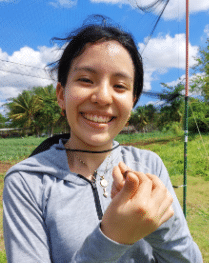
nuria.juarez.bazan@gmail.com
Sara Luz Vázquez Reza
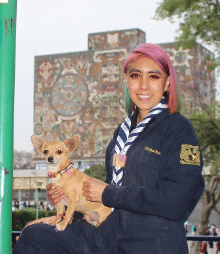
sara.saluvare@gmail.com
Volunteers
David Bovelo

novelo.fer.01@gmail.com
Grupos de trabajo
Entomología Médica. David Roiz, María José Tolsá, Omar García, Paola Martínez, Víctor Rodríguez, Paulina Walbey, Laura Alvarez y Roger Arana.
Vertebrados. Gerardo Suzán, Ana Laura Vigueras, Paulina Walbey, Carlos Manchain-Williams, Laura Alvarez y María José Tolsá.
Humanos. Benjamin Roche, Audrey Arnal, Ana Laura Vigueras, Rosa Elena Sarmiento, Carlos Manchain-Williams y Marco Antonio Jiménez.
Diagnóstico. Rosa Elena Sarmiento, Carlos Manchain-Williams, Marco Antonio Jiménez, Erika Hernández, Ana Laura Vigueras y María José Tolsá.
Modelización y estadística. Benjamin Roche, Alhelí Flores-Ferrer, Paulina Pontifes y Fabiola Nieto.
Análisis geográfico. Omar García, Laura Alvarez, Paulina Walbey y Paola Martínez.
Socioecosistemas. Mitsuri Pacheco y Fernanda Pérez .
Evolución y filogenia. Rosa Elena Sarmiento y Paola Martínez .
Experimental. Audrey Arnal.
Economía de enfermedades. David Roiz y Paulina Pontifes.
Formación de recursos humanos. Fernanda Pérez .
